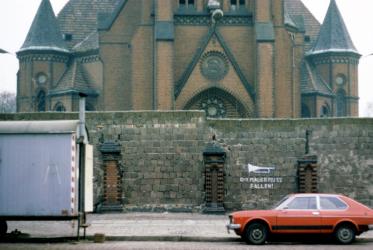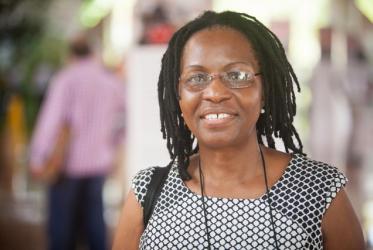Displaying 561 - 580 of 708
Faith organizations assess COP 20 on the way to Paris
28 January 2015
Pilgrims of climate justice plan to impact COP 21 in Paris
23 January 2015
Water network develops a theological framework for water justice
12 December 2014
WCC member churches commit to climate justice at COP 20
10 December 2014
Ecumenical organizations set to promote climate justice at COP 20
01 December 2014
The Berlin Wall: looking back, looking forward
07 November 2014
Indigenous faith leaders reflect on resilience and climate change
23 September 2014
Weaving together personal faith and climate change
23 September 2014
Heal the earth, fight against climate change
22 September 2014









